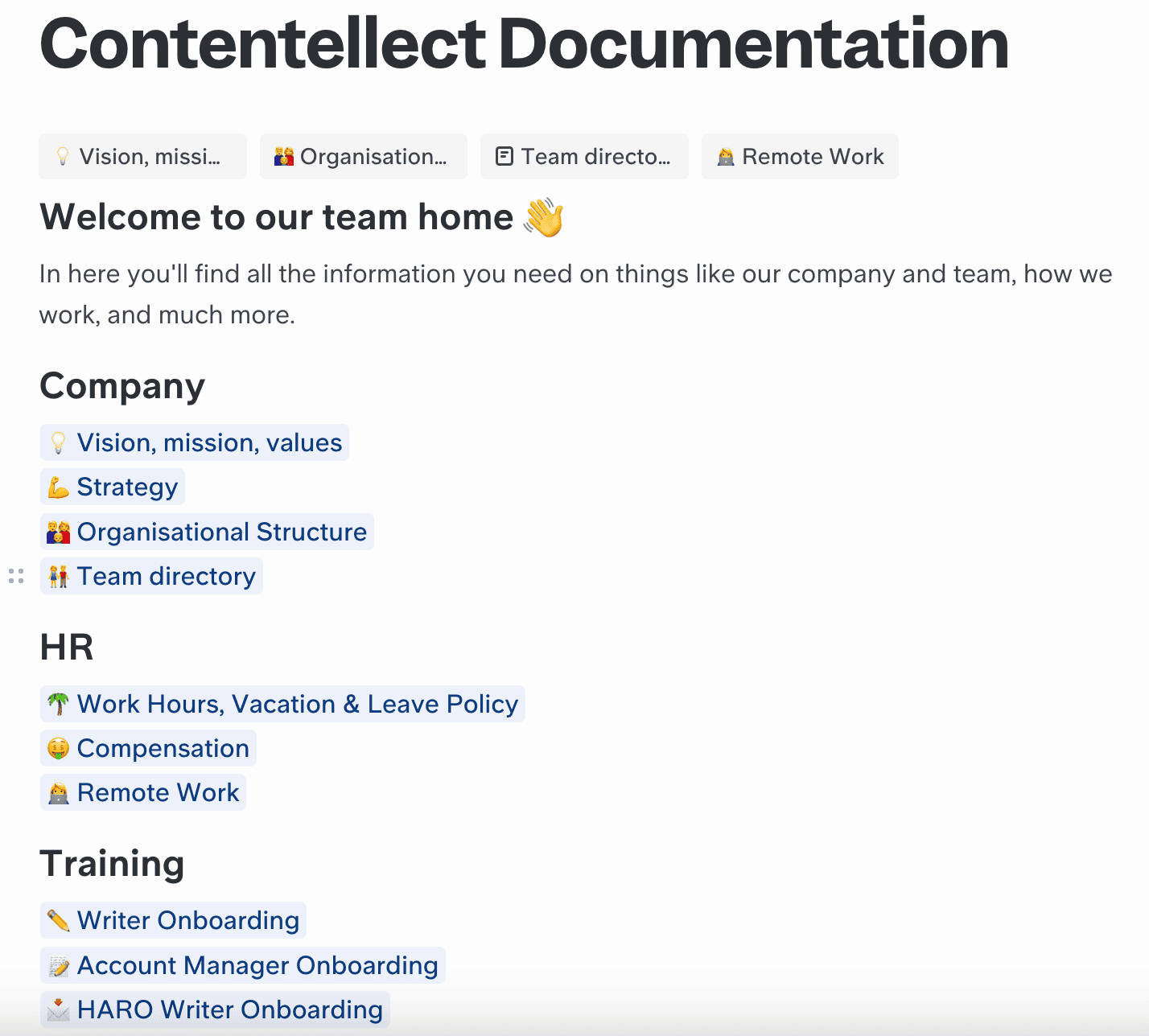Are you looking for remote work pros and cons? You’re in the right place, and I congratulate your smarts. It pays to know what you’re getting into.
After all, 44% of UK working adults are employed remotely. For years, I’ve been lucky to count myself among them.
I’ve dealt with all the remote work challenges and enjoyed the benefits of working from home, too. This makes me the best guide you can find.
Ready to discover the pros and cons of remote work? Let’s roll.
13 Pros And Cons Of Remote Work
Here are the pros and cons of remote work.
Remote Work Pros | Remote Work Cons |
|---|---|
1. Better Work-Life Balance: More control over work hours allows for personal activities. | 1. No Face-to-Face Connection: As a remote worker you miss out on in-person interactions. |
2. More Freedom: You can choose your working location and environment. | 2. Lack Of Access To Information: It may be harder to find or share information when you're new in a remote company. |
3. Improved Employee Experience: Employees often feel more satisfied working from home. | 3. Decreased Collaboration: Collaboration and teamwork can be challenging remotely. |
4. Decreased Infrastructure Costs: Businesses save money on physical office spaces. | 4. Loneliness And Isolation: Working alone can feel isolating, harming your mental health. |
5. Increase In Productivity: Many find they work more efficiently from home. | 5. Career Growth Challenges: It might take more work to advance in your career. |
6. Ability To Hire And Retain Top Talent: Companies can recruit from a wider geographic area. | 6. Overworking Issues: Difficulty in disconnecting often leads to overworking and burnout. |
7. Custom Work Environment: Employees can set up their workspace as they prefer. | Cell |
Let’s start by looking at the pros of remote work.
7 Pros Of Remote Work
As a remote worker I enjoy several excellent benefits of remote work. Here are my 7 favourite advantages of working from home.
1. Better Work-Life Balance

Remote work gives you the advantage of leading a healthier lifestyle.
According to TUC, the average UK employee spends around 59 minutes commuting to work.
That’s 2 hours every day. It quickly adds up to 520 hours or 21 days annually. No wonder I think commuting is shit.
Luckily, remote employees don’t have to deal with commutes.
With all this extra time, we get to spend it with our families, on our hobbies, or going for a relaxing walk.
In fact, Forbes found that remote workers exercise for almost 90 minutes more per week. They also get an extra 71 hours of sleep every year.
But it’s not just me that’s benefiting from this extra time. My employer benefits, too.
Why? With no commute, I feel energised and ready to tackle the day. I focus better, and my productivity is higher.
2. More Freedom

I love having flexible working hours!
Another remote work pro is having more freedom and flexibility.
Unlike my office-bound counterparts, I don’t have to work 8 hours from an office every day, every week.
I don’t have to ask for permission to run an errand quickly, take my dog for a walk, or grab a power nap.
As a remote worker, I get to set my schedule. And most companies approve. Over the last few years, there’s been a major shift from hours worked to tasks achieved.
This outcomes-based approach worked well for Mark, CEO of Sauce Remote. He hired remote employees and built several six-figure businesses. It worked.
There’s another benefit to explore.
With this freedom, remote employees can focus on getting the work done. Instead of sitting in front of a screen for several hours daily, they can tackle their tasks when they feel more productive.

Discover how to slash your salary costs by 80%
Get our exact process for hiring amazing overseas talent from South Africa. Includes copy-and-paste templates and a detailed salary guide.
3. Improved Employee Experience
According to FlexOS, 98% of job seekers want to work remotely. 52% of employees will quit if they can’t work remotely.
Clearly, your company can only succeed when it offers a remote or a hybrid remote work model.
This begs the question, why does remote work improve the employee experience? I’ve found several answers.
- Comfort: Employees can work where they feel most comfortable, like their home.
- Flexibility: They can choose when to work, which can help them handle personal tasks and reduce stress.
- Less Commuting: Not travelling to an office saves time and money and reduces stress from traffic.
- Personalised Workspace: Employees can set up their work area just how they like it, making them happier and more productive.
- Work-Life Balance: Easier to balance work duties and personal life, like spending time with family or hobbies.
- Healthier Choices: More control over meals and breaks can lead to healthier choices.
I haven’t forgotten about the employers. They also benefit from remote work.
Hire remote talent from South Africa & slash salary costs by 80%
Salaries start from £8,000 per year!
4. Decreased Infrastructure Costs
I crunched some numbers about managing an office in the UK. The numbers are shocking.
According to Nerdwallet, with a common rule of thumb recommending 50 square feet per desk, you could be looking at £45,900 a year in rent to accommodate one employee.
Luckily, remote work comes to the rescue.
Companies can save money by having smaller offices and fewer desks and equipment to support employees.
A 2-year Stanford study found that companies can save up to $2,000 (or £1,800) for every hybrid remote worker they employ.
Just imagine the same savings when you run a fully remote company.
Decreased infrastructure costs aren’t the only way companies make more money with remote workers.
5. Increase In Productivity

Remote work leads to fewer workplace distractions.
According to Tech.co, 64% of fully remote businesses are highly productive. And what about traditional, office-bound businesses? They only report a 54% productivity level.
I found some other insightful remote work productivity stats to confirm this.
- A Stanford survey found that remote work increased performance by 13%.
- Buffer found that 70% of remote workers agree it’s easier to focus on work when working from home.
- Another Airtasker survey found that remote employees spend up to 1.4 more days working than their office-bound coworkers.
With this boost in productivity, it’s no wonder more companies are looking to hire full or hybrid remote teams.
6. Ability To Hire And Retain Top Talent

Great companies offer remote and hybrid work models
IWG’s Workplace survey found that 83% of job seekers want to work remotely. 74% of employees will look for another job if they can’t work remotely.
It’s clear that if your company doesn’t offer remote work, it’s going to become tricky to attract and retain the top talent.
And let’s be honest. It’s expensive to hire employees.
According to PayFit in the UK, the average cost per hire (based on a salary of £27,600) can reach a whopping £62,890!
The solution?
Hiring remote employees or offering remote and hybrid remote work options to your existing staff. If you don’t, they may just start looking for another job.
7. Custom Work Environment
And here’s my final, favourite remote work pro. I get to customise my work environment.

This is my Star Wars themed desk.
As a remote employee, I can deck out my office space with the equipment, comfort features, and themes I need to be productive.
I’m not the only one who’s noticed increased performance since I customised my workplace.
Technis found that employees who work in a comfortable environment are 16% more productive. They also have 87% less absenteeism than those who don't.
6 Cons Of Remote Work
Naturally, there are some remote work challenges that we must deal with. These are my six worst disadvantages of working from home.
1. No Face-To-Face Connection
Despite research proving the contrary, managers still worry that no face-to-face connections will reduce team efficiency.
They’re not entirely wrong.
Employees can feel left out and struggle with no team meetings. Luckily, regular team meetings are an excellent way for managers to get in touch with the needs and challenges of their remote employees.
2. Lack Of Access To Information
Onboarding a new employee can be tricky. It gets even trickier if you must onboard a remote employee.

An example of our Contentellect employee handbook.
In fact, Nintex found that the average office-bound employee spends 30% of their time searching for information.
Remote work can increase this. It can also add frustration as employees must contact coworkers and managers through messaging apps for assistance.
Sadly, this decreases productivity. But there’s hope.
An excellent onboarding process and a robust remote work culture can improve access to information, build team cohesion, and increase overall efficiency.
3. Decreased Collaboration
Employees working remotely don’t interact as often as their office-bound coworkers. While many of these conversations are unnecessary, they build team coordination and communication.
And we all know the better a team communicates, the better it performs.
How do you solve this? By encouraging random banter.

Here you can see two of my coworkers chatting away in our #random channel.
Invite the entire team to participate. This encourages coworkers to be comfortable with each other.
Soon, they’ll be open enough to contact their colleagues about any problems and issues affecting their work.
But, decreased collaboration is only one side of the coin.
4. Loneliness And Isolation
In an office, you spend time with people. Even during your commutes, you see and interact with people. The National Institutes of Health states that this social interaction improves mental health.
However, remote employees have fewer social interactions. The result? Loneliness and isolation.
According to Made of Millions, lonely workers report feeling less productive. They are also five times more likely to miss work due to stress.
It’s clear going to the office adds structure and routine. So, how can you do that when working remotely?
Organise regular virtual events and team-building sessions.

Contentellect's Halloween virtual event
As a remote worker, I love these events. They improve our team’s communication and let us destress.
5. Career Growth Challenges
Some industries require face-to-face interactions for career development.
The Wall Street Journal reports that people working from home get promoted 31% less frequently than office-based workers.
You may have fewer networking, mentorship, and leadership opportunities as a remote worker.
The solution? Develop a habit of showcasing your skills and accomplishments. Join virtual networking opportunities and stay in touch with your coworkers.
Now, let’s move on to the final remote work con, which is also the one I struggle the most with.
6. Overworking Issues
Remote work blurs the lines between work and private life. I used to feel like I was permanently on call. And I wasn’t alone in experiencing this.
Monster’s poll found that 69% of remote employees experience burnout at least once.
It’s not just Monster saying this. Bloomberg also found that remote workers are more likely to overwork.
Unfortunately, overworking can decrease performance, harm your mental well-being and lead to physical issues.
Again, the solution is pretty simple. Create a dedicated workspace.
Better yet, a space with a door that you can lock once you’re done for the day. This helps separate your work from your private life and creates a healthy work-life balance.
My Final Thoughts
And there you have it! I walked you through 13 remote work pros and cons. From good to bad, one thing is clear: the benefits will always outweigh the disadvantages. What do you think?
